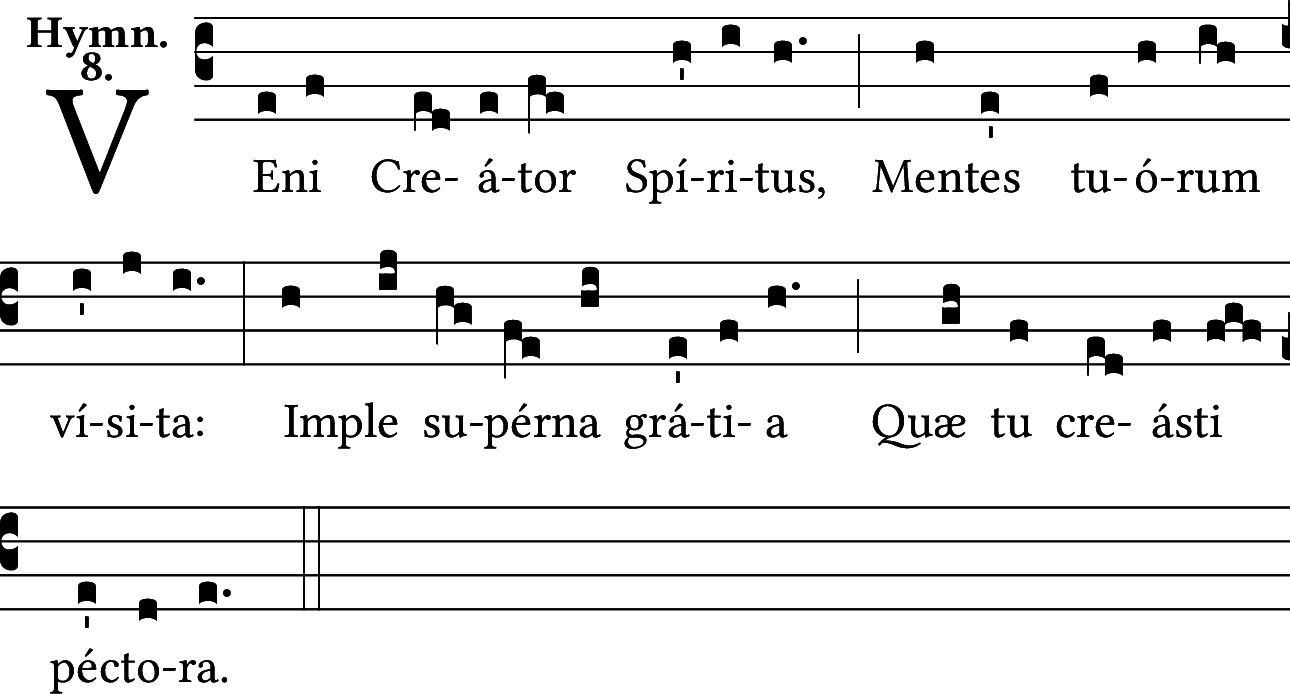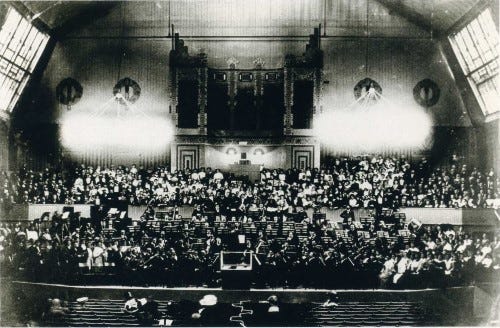
The process of composing for Mahler was often incredibly arduous and difficult. He did not have time to compose for most of the year because his job as the General Music Director for the Vienna Hofoper was all-consuming. He only could write music during his summer holidays and it would often take weeks for him to decompress and get into the proper mindset. Then he would often only partly finish the symphony just as the summer holidays were coming to a close. No so for his Symphony №8.

Inspired by the 9th century Pentecostal Latin hymn, Veni Creátor Spíritus, Mahler immediately began writing his new symphony upon his arrival to his summer villa in Maiernigg in July, 1906. It took just six weeks for him to write a symphony that required the largest, most complicated forces. Originally conceived in the typical four movement structure, it quickly morphed into just two parts: Part I, which uses the Veni Creátor Spíritus text and lasting approximately twenty minutes; and Part II, which uses text from the closing passages of Goethe’s Faust. What binds these seemingly disparate texts — one sung in Latin, one sung in German — is the meaning behind both of them: redemption through love.
The premiere took place in Munich, September 12, 1910, in the brand new concert hall of the International Exhibition Center, with Mahler conducting a combined choir of 850 from Munich, Leipzig, and Vienna, a children’s choir of 350 from the Munich Zentral-Singschule, 8 vocal soloists, and the Munich Philharmonic, which was beefed up to 150 players. Those present for the premiere were a who’s of the artistic intelligentsia: the writers Gerhart Hauptmann, Thomas Mann, Stefan Zweig, Emil Ludwig, Hermann Bahr and Arthur Schnitzler; the composers Camille Saint-Saëns, Richard Strauss, Max Reger and Alfredo Casella; the conductors Bruno Walter, Oskar Fried, Franz Schalk, and the 28-year-old Leopold Stokowski. Stokowski was overwhlemed by the experience and just six years later would conduct the U.S. premiere in Philadelphia.

Unlike his previous symphonies, it was an unqualified success from the moments the finals chords died away. Twenty minutes of ecstatic ovation followed by fans applauding Mahler even at his hotel. Thomas Mann wrote Mahler a letter that arrived at the hotel the next day referring to the composer as, “the man who, as I believe, expresses the art of our time in its profoundest and most sacred form.” No one knew that this would be the last piece of his that he would conduct and just eight months later, Mahler would be dead.
Here is the Mahler Festival Online’s short documentary of Symphony №8
Here are my favorite performances of Mahler’s Symphony №8